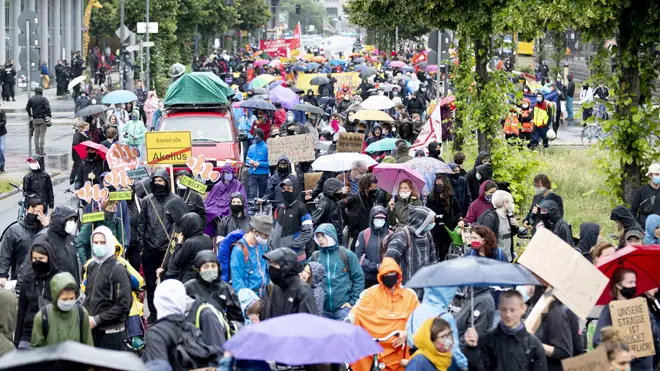
Ian Payne 4am - 7am
22 June 2020, 10:01

The reproduction rate of coronavirus in Germany has risen from 1.79 up to 2.88 in the space of a day following a number of localised outbreaks.
The Robert Koch Institute (RKI) said this weekend that the R number had risen from 1.79 on Saturday to 2.88 on Sunday.
The RKI said that the rise was influenced by spikes in nursing homes in the country, and in meatpacking plants.
To stop the virus from spreading, the R number needs to remain lower than one.
“Since case numbers in Germany are generally low, these outbreaks have a relatively strong influence on the value of the reproduction number,” The RKI said in a statement.

Why is Germany's R-number rising and are the government worried?
“Further developments need to be monitored closely during the upcoming days, especially in regard to whether case numbers are increasing outside of outbreak contexts.”
In a briefing on Friday, the head of the World Health Organisation said the coronavirus pandemic is "accelerating" and that more than 150,000 cases were reported on Thursday - the highest single-day number so far.
Listen & subscribe: Global Player | Apple Podcasts | Google Podcasts | Spotify
WHO chief Tedros Adhanom Ghebreyesus said nearly half of the newly reported cases were in the Americas, with significant numbers in south Asia and the Middle East.
"We are in a new and dangerous phase," he said, warning that restrictive measures are still needed to stop the pandemic.
"Many people are understandably fed up with being at home (and) countries are understandably eager to open up their societies," he added, but warned that the virus is still "spreading fast" and that measures like social distancing, mask wearing and hand-washing are still critical.
He noted the toll would be especially great on refugees, of whom more than 80% live in mostly developing nations.
"We have a shared duty to do everything we can to prevent, detect and respond to the transmission of Covid-19 detected among refugees in hospitals."